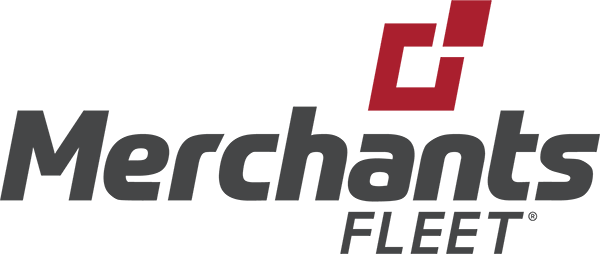
I’ve had the unique experience of first being a Merchants Fleet client who then sat on their board, and ultimately became CEO. Experiencing both sides of the client-FMC relationship has helped me better understand what clients need the most from FMCs and how FMCs can elevate their relationships with their clients. Providing clients with superior service is one of the main ways fleet management companies can differentiate themselves in an increasingly crowded market.
As a client ten years ago, we had a fleet of 1,500 vehicles and an additional 8,500 vehicles on employee reimbursement, which were driven by service technicians across the country and globally as well. Vehicles were an operational necessity to our business and had a significant financial impact on the organization, so even though I was the CEO I was involved due to the impact on the organization. Reflecting on my time as a CEO with a fleet, to now being CEO of a fleet company, here are my biggest takeaways about how fleet companies can take a good client relationship and turn it into a great one.
Take the Time to Educate Clients about Best Practices
Having a good relationship with your clients at both the executive and working levels is important for FMCs. Taking the time to educate clients on what other, comparable fleets are doing can elevate that relationship from a good vendor to a great partner.
In my previous company’s case, we were a technology company that happened to have a fleet so technicians could make service calls. We had a fleet manager, but we weren’t fleet experts. One of our fleet’s challenges was driver behavior. Our technicians were so focused on getting to customers as quickly as they could that it produced driver behavior challenges, such as accidents and aggressive driving patterns that resulted in increased wear-and-tear, which ultimately led to recurring maintenance issues. As a company, a lot of our training went into making our drivers better technicians, but they were spending five or six hours driving every day. We didn’t put enough focus on their driving.
Our company could have asked how to distill and leverage telematics data, or how could HR have used our telematics data to motivate change in driver behavior? FMCs can make a greater impact with their clients if they take the time to be proactive highlighting fleet trends and opportunities for a fleet to pilot new programs to address challenges.
Use Today’s Data Capabilities to Make Recommendations
The biggest things FMCs have that clients want are data and expertise. With today’s technology, FMCs know so much about a client’s fleet – they can see how a fleet is performing, mileage of every vehicle, how vehicles are being used, and where vehicles are being driven. Ten years ago, many companies had full-time fleet managers to help manage this data, but as companies do more with less, managers of fleet wear multiple hats and hold responsibilities outside of fleet as well. Today, organizations that rely on vehicles have more data, but fewer resources to manage that data and implement efficiencies. Having streams of data is empowering, but can also be very overwhelming.
As a client, the biggest thing I wanted was for my fleet partner to interpret my data and tell me what it’s telling me to do. Especially for today’s time-crunched fleet managers, FMCs can stand out by proactively managing clients’ fleets for them. For example, if a client has telematics, proactively track their idle time. Maybe it’s showing that in certain urban locations the client could benefit from using electric vehicles, which would be more fuel efficient.
Help Clients Think Critically About Employee Reimbursement
Our company had a big fleet, but we also had a large amount of employee reimbursement. Fleet partners can impact clients’ bottom lines by offering consulting on reimbursement. For example, should a company have the mix they have, such as 85% reimbursed and 15% fleet, or should they move to more fleet vehicles? Maybe a mobility solution like pool vehicles should be considered. There is a myth that employees like driving their own vehicles because they want the reimbursement. That may be true for the casual driver, but when you’re talking about higher mileages, drivers realize it puts a lot of wear and tear on their vehicle, and they realize they would rather be using a company vehicle. A great fleet partner will help you to look at the options and find the right balance that works for your organization financially and culturally.
Be Proactive
Ultimately, FMCs should keep proactive service at the forefront of their relationships with clients. There are many questions to consider. How do you proact so you don’t have to offer a reactive service? Can you see that a vehicle needs maintenance, or can you see that there is going to be an issue before it’s an issue? What can we do not to eliminate service calls, because you don’t want to fully do away with them, but to reduce them? This comes back to proactive service.
In my experience, clients often don’t clearly communicate that what they really want vendors to do is bring new ideas to the table instead of just delivering on the exact terms of a contract. A fleet partner who is able to harness the trends they see and interpret that into concrete, actionable recommendations, even before a fleet manager asks, will add tremendous value to that relationship.
Be Forward-Thinking
The FMCs that will win in the future will be the ones that harness data, artificial intelligence, and machine learning to make predictive analyses that help clients increase productivity, increase efficiency, leverage mobility trends, telematics, connective vehicles, autonomous vehicles, and electrification. We can’t pick up an industry magazine without reading about these trends, but if you go into the market and ask who is doing them, you don’t hear as many success stories. FMCs need to propose forward-thinking solutions, such as suggesting a pilot program for electric vehicles or vehicle sharing in a metro area if it makes sense for the use case, and actively help their clients see the future.

